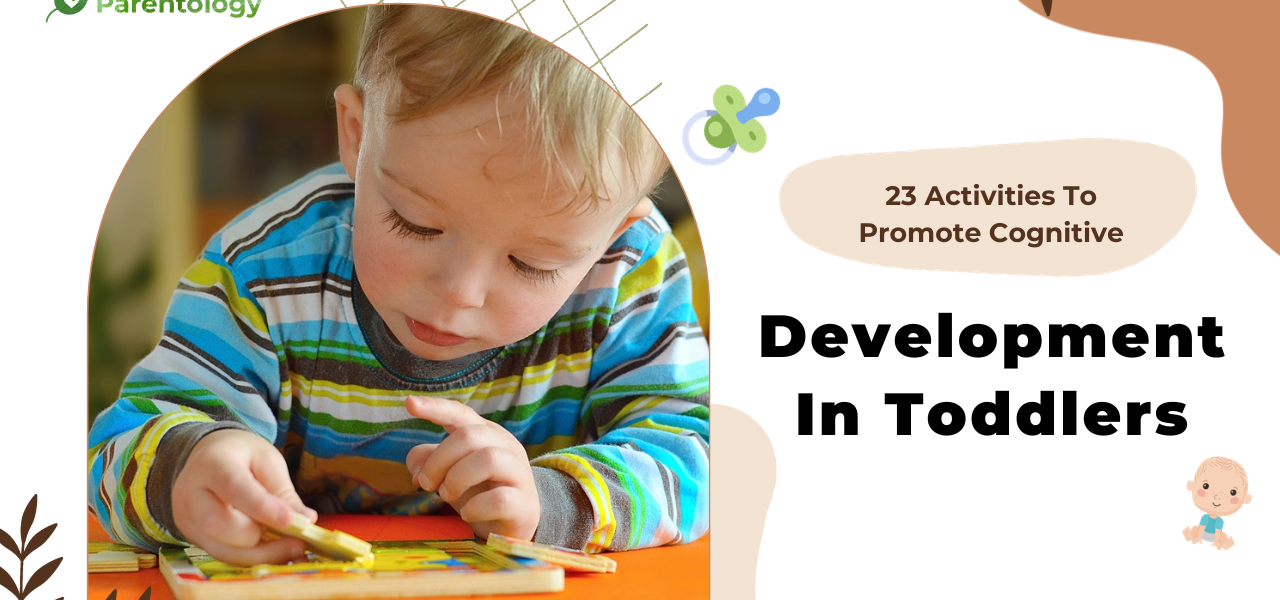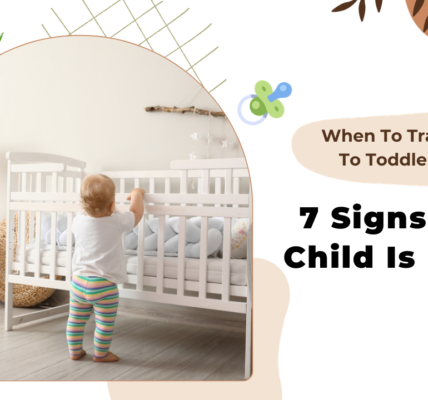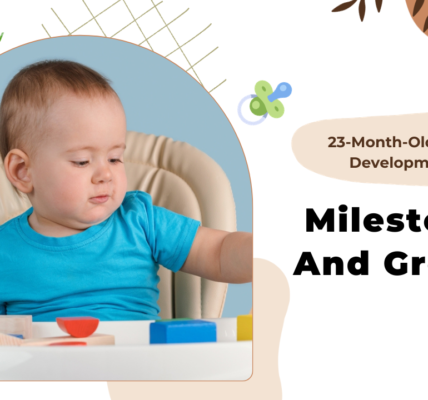Unlocking Your Toddler’s Potential: 23 Activities To Promote Cognitive Development
Welcome to the world of toddlers, where every moment is an opportunity for learning and growth. Cognitive development is a critical aspect of a child’s early years, laying the foundation for their future. In this comprehensive guide, we’ll explore 23 engaging and imaginative activities to promote cognitive development in toddlers. These activities will help enhance your child’s problem-solving abilities, critical thinking, and creativity while having a blast.
Understanding Cognitive Development in Toddlers
Cognitive development encompasses the intellectual growth and mental capacities that toddlers build. It involves memory, problem-solving, reasoning, and language skills. These cognitive abilities form the basis for a child’s ability to absorb, process, and understand information as they grow.
The Significance of Cognitive Activities
Cognitive activities are not just fun and games for toddlers. They are critical in stimulating brain development during this formative stage. By participating in these activities, children foster essential skills such as memory retention, problem-solving, creative thinking, and effective communication. Furthermore, these activities play a crucial role in building a child’s self-esteem and confidence.
Creative Cognitive Activities for Toddlers
Here are 23 creative and engaging activities that can supercharge your toddler’s cognitive development. You can effortlessly incorporate these activities into your daily routine, making learning a fun and seamless part of your toddler’s life.
1. Puzzle Play
- Age-appropriate puzzles improve problem-solving and fine motor skills.
- Start with simple shapes and progress to more complex puzzles.
2. Creative Block Building
- Blocks inspire creativity and spatial reasoning.
- Encourage building different structures using various shapes.
3. Magical Storytime
- Reading nurtures language skills, imagination, and critical thinking.
- Opt for colorful picture books and engage in interactive storytelling.
4. Shape and Color Scavenger Hunt
- Turn everyday life into a learning adventure with shape and color hunts.
- Challenge your toddler to find objects that match your cues.
5. Sorting Sensation
- Sorting games with objects like buttons or beads improve categorization skills.
- Toddlers can arrange items by color, shape, or size.
6. Nature Exploration
- Foster observation and appreciation for the natural world through outdoor adventures.
- Collect leaves, rocks, or examine insects while discussing your discoveries.
7. Cooking Adventures
- Baking and cooking provide lessons in measurement, following instructions, and exploring different ingredients.
- Let your toddler help with simple tasks like stirring or pouring.
8. Artistic Expressions
- Arts and crafts encourage creativity and fine motor skills.
- Provide materials such as colored paper, crayons, and glue for open-ended art projects.
9. Hide-and-Seek
- This classic game enhances memory and problem-solving.
- Begin with simple hiding spots and gradually make the game more challenging.
10. Musical Moments
- Singing, dancing, and playing musical instruments promote language development, rhythm, and coordination.
- Encourage your toddler to make their own musical instruments from household items.
11. Number Fun
- Teach numbers through games and counting everyday objects.
- Incorporate numbers into daily activities, such as counting steps or apples at snack time.
12. Family Storytelling
- Encourage grandparents, parents, or older siblings to share family stories.
- This fosters a love for storytelling and strengthens family bonds.
13. Shadow Play
- Create simple shadow puppets using hands and a light source.
- Discuss shapes and movements, sparking imagination.
14. Rhyme Time
- Reading nursery rhymes and singing songs with rhymes improves phonemic awareness.
- Your toddler can even create their rhymes.
15. Animal Adventures
- Learn about animals, their habitats, and sounds.
- Visit a petting zoo or explore animal documentaries together.
16. Planting Seeds
- Gardening provides a hands-on lesson in life cycles and nurturing.
- Grow simple plants like flowers or herbs together.
17. Pattern Play
- Recognizing patterns is a crucial cognitive skill.
- Use toys or everyday objects to teach patterns.
18. Scavenger Hunts
- Create scavenger hunts around your home or in the backyard.
- Offer clues and encourage toddlers to solve riddles to find hidden treasures.
19. Science Experiments
- Conduct simple, safe experiments that explore scientific concepts.
- For example, create a volcanic eruption with baking soda and vinegar.
20. Memory Games
- Play games like Memory or Simon Says to enhance memory and focus.
- As your toddler progresses, increase the complexity of the games.
21. Digital Exploration
- Utilize educational apps and games on tablets or smartphones.
- Choose apps that focus on cognitive development while monitoring screen time.
22. Learning a New Language
- Introduce basic words and phrases from a different language.
- Explore educational videos or use language-learning apps together.
23. Encourage Curiosity
- Foster inquisitiveness by welcoming questions.
- Provide clear and age-appropriate answers, encouraging critical thinking.
FAQs about Cognitive Activities for Toddlers
Q 1. How do cognitive activities benefit toddlers?
Ans 1: Cognitive activities enhance memory, problem-solving, reasoning, and decision-making skills in toddlers, laying the foundation for their academic and personal development.
Q 2. Can I start these activities with my toddler even before they can talk?
Ans 2: Absolutely! Many of these activities are suitable for non-verbal toddlers and can enhance their cognitive development.
3. Are there cognitive activities that can be incorporated into daily routines?
Ans 3: Yes, activities like counting steps, narrating your day, or identifying colors in daily life can naturally promote cognitive development.
4. Is screen time considered a cognitive activity?
Ans 4: While some educational apps can be beneficial, it’s essential to limit screen time for toddlers and balance it with other activities like reading and outdoor play.
5. How can I track my toddler’s cognitive development progress?
Ans 4: You can monitor your toddler’s progress by observing their ability to solve puzzles, answer questions, and use language skills. Remember that every child develops at their own pace.
Conclusion
Cognitive activities for toddlers are a powerful tool to support your child’s development. Through play, exploration, and bonding, you can lay the foundation for a bright future. These 23 activities are just the beginning of a wonderful journey of learning and growth. Get ready to witness the incredible cognitive development of your toddler as they explore, inquire, and discover the world around them. Happy learning!
Visit Parentology for more parenting tips and advice.
Remember, the most important aspect of these activities is to have fun with your toddler. By making learning enjoyable, you’ll be giving them the best gift of all: a lifelong love of learning.





